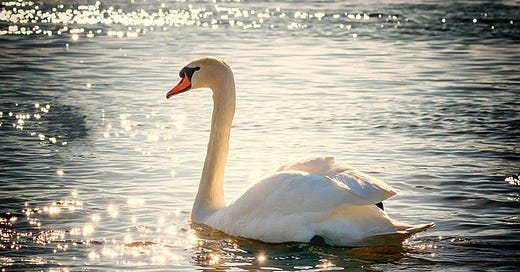"Thousand have lived without love, not one without water." - H. Auden.
"When the well is dry, we know the worth of water." - Benjamin Franklyn.
"Water is the driving force of all nature." - Leonardo da Vinci.
"We forget that the water cycle and the life cycle are one." - Jacques Cousteau.
Part I
Water's ever-changing form, from rain to river to the sea, the cycle of life, death, and rebirth, underscoring its connection to the concept of transformation. This fluidity makes it a metaphor for the flow of time, change, and life transitions. It teaches resilience and adaptability as it molds itself to containers, carves landscapes, and can escape through the smallest openings, embodying the idea that change is the only constant.
In human psychology, water represents the depths of the unconscious and the unknown. Water is often a symbol of the psyche in literature and dreams, holding secrets, emotions, and unexplored parts of the self. It can be serene and calming, inviting reflection and introspection, or it can be dark and mysterious, a realm where fears and hidden truths lurk. This duality reflects the human mind's complexities, with its surface thoughts and more profound, sometimes unfathomable, undercurrents.
However, water's meaning is not solely benevolent. It also embodies destruction and chaos. Floods, tsunamis, and storms showcase water's devastating power, reminding humanity of its vulnerability and the forces of nature that can swiftly overturn lives and landscapes. This destructive aspect underscores respect and awe for natural elements, teaching lessons about humility, preparedness, and the importance of environmental harmony.
Culturally, water is a source of inspiration, recreation, and sustenance. It shapes identities, with communities around lakes, rivers, and seas developing unique ways of life, traditions, and economies based on fishing, trade, and travel. Water is a bridge and a barrier, connecting and dividing people, lands, and ideas. It reflects its role in human history as a conduit for exploration and a source of conflict.
Economically, water is both a priceless resource and a commodity central to agriculture, industry, and energy production. The management and distribution of water reflect the complexities of human societies, where water can be a source of cooperation, conflict, wealth, or deprivation. Ensuring equitable access to clean water continues to be a pressing global issue, highlighting the intertwined destinies of humanity and this vital resource.
In the face of climate change, the meaning of water is evolving, symbolizing humanity's challenges and choices. Melting ice caps, rising sea levels, and changing weather patterns underscore water's role in the climate system and its impact on habitats, economies, and cultures. Water has become a focal point in discussions about sustainability, conservation, and the planet's future, embodying hope for resilience, innovation, and collective action.
In essence, water is a mirror reflecting the countless facets of existence. It nurtures and destroys, connects and divides, inspires and terrifies. Its meanings are as deep and varied as life itself, a testament to its central role in the tapestry of the natural world and human culture. In its simplicity, water encapsulates the complexity of the universe, reminding us of the interconnectedness of all things and the precious balance that sustains life on Earth.





I never thought of it this way but a great point Allan: “water is a source of inspiration”
As a lap and open water swimmer, the cultural awareness description of water as “recreation” is very appropriate! Being “in” the water makes me feel “of the water”. At times I “am the water”; when the glide is as effortless as the movement of a bead of mercury. I have been in or around water all my life.
My life in a small, coastal New England town brings the sights and sounds of the ocean’s power, serenity and everything in- between on a daily basis. Water is a teacher, especially of the constant change you’ve mentioned.
I look forward to reading your Part 2 contribution about the mystery and spirituality water represents. We float in liquid in the womb before birth, need water for sustenance and hygiene in life. Water symbolizes rebirth in baptism, and its beauty nurtures the mind and soul whether we are in it or viewing it as oceans, lakes, streams, ponds, rivers or pools. My relationship to water sustains my soul and remains an integral part of my emotional and spiritual health.